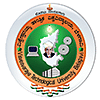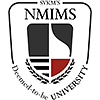Master of Public Administration Syllabus and Subjects
The MPA syllabus is taught over two years, broken down into four semesters focusing on administrative theories, the history of administration, the functioning of organizations, and an in-depth study of various economic, legal, and social issues inherent in the field.
The MPA full form is Master of Public Administration, which focuses on the administrative roles for the bureaucracy and governance. After graduating from the course, the job scope ranges from Civil Service, Director of Development, Mayor, etc.
Table of Contents
Semester Wise MPA Syllabus
MPA Syllabus provides candidates with advanced knowledge on subjects such as Theories and Practice of Modern Government, Organizational Behavior, Public Policy, Social Welfare Administration, etc. The course is broken down into semesters in the tables below:
MPA First Year Syllabus
In the table given below are MPA 1st semester syllabus and MPA 2nd semester syllabus:
| Semester 1 | Semester 2 |
| Theories and Practice of Modern Government | Comparative and Development Administration |
| Administrative Theory | Organizational Behavior |
| Concepts and Principles of Public Administration | Theory and Practice of Local Governments |
| Indian Administration | Public Personnel Administration |
| State, Society, and Public Administration | Administrative Reforms and Ethics |
MPA Second Year Syllabus
In the table given below are MPA 3rd semester syllabus and MPA 4th semester syllabus:
| Semester 3 | Semester 4 |
| Financial Administration in India | International Administration |
| Public Policy and Analysis | Social Welfare Administration |
| Human Resource Management | Citizen Administration Interface and E-Governance |
| Women In India | Administrative Law |
| Research Methodology | Dissertation/Project |
MPA Course Subjects
In MPA course subjects, the papers are divided into two parts: core and electives, which cover a broad range of topics, including Administration, Public Policy, Political Bodies, Governance, and Laws. In the list below are MPA subjects in two categories and in detail:
Core MPA Subjects
The following subjects are among those on the list of core MPA subjects:
- Administrative Theory
- Public Policy Frameworks
- Public Policy and Analysis
- Comparative Public Administration
- Economics for Public Policy Makers
- Development Administration
- Administrative and Management Thinkers
- Statistics for Policy Makers
- Financial Management and Budgeting
- Ethical Issues for Policy Leaders
Elective MPA Subjects
Electives in the MPA subject are based on skill and disciple-based courses, which are listed below:
- Administrative Techniques
- Good Governance
- IT & CA in Public Administration
- Financial Administration in India
- Cultural Heritage Management
- Labour & Industrial Laws
- Constitutional Laws
MPA Course Subjects In Detail
MPA deals with the study of Administration, Public Policy, its drafting, framework, governance, etc. The table given below highlights the MPA subject and topics in detail:
| MPA Course Subjects | Topics |
| Administrative Theory | Nature and scope of public administration, Concepts and principles of Organisation, Delegated Legislation and Administrative Adjudication. |
| Administrative Management and Thinkers | Kaulitya, Mahatma Gandhi, Max Weber, Chester Bernard, A.H. Maslow, Fredric Herzberg, Fred.W. Riggs. |
| Indian Administration | Evolution of Indian Administration, Government at Central Level, Government at State Level, Commissions in India. |
| Organisational Behaviour | Organization and its analysis, Nature of Organization behavior (OB), Social Factors & Behaviour, Organisational Culture. |
| Public Personnel Administration in India | Public Personnel Administration, Bureaucracy, Civil Service in India, Morale, Ethics and Professional Standard in Public Personnel Administration. |
MPA Course Structure
In general, the MPA syllabus consists of core papers, elective subjects, dissertations, project work, seminars and conferences held by the Indian government and ministries. The list below sheds light on the course structure for MPA:
- IV Semesters
- Core Papers
- Elective Subjects
- Projects
- Research
MPA Teaching Methodology and Techniques
In MPA course subjects, teachings focus on compelling reading, academic writing, critical thinking, leadership skills, and advice and practices on cross-cultural communication. For such an in-depth study, the following teaching methodologies are used:
- Classroom Based Teaching
- Workshops
- Seminars
- Conference
- Case studies
- Internships
- Projects
MPA Projects
The MPA syllabus projects serve as an overall course assessment involving program evaluations and policy analyses in the public and nonprofit sectors. Given below are some of the project topics in the MPA course:
- Public Policy Implementation In Nigeria And Economic Development
- Public Relation A Tool For Conflict Resolution
- Voter's Turnout and Democratic Consolidation: A Case Study Of 2015/2019
- The Role Of The Legislature In the Policy-Making Process
MPA Reference Books
There are many reference books in the MPA syllabus which are given in the table below:
| Books | Author |
| Public Budgeting Systems | Robert D. Less |
| Managing Human Behavior in Public and Nonprofit Organizations | Robert B. Denhardt |
| Politics of the Administrative Process | Donald F. Kettl |
| The Administrative Threat (Encounter Intelligence) | Philip Hamburger |
| Administrative Thinkers | Prasad and Prasad |
Top Arts Entrance Exams
FAQs on Master of Public Administration Syllabus and Subjects
Q: What is the full form of MPA?
Q: What is subject in MPA?
Q: What are the benefits of MPA course?
Q: What is the course structure of MPA?








